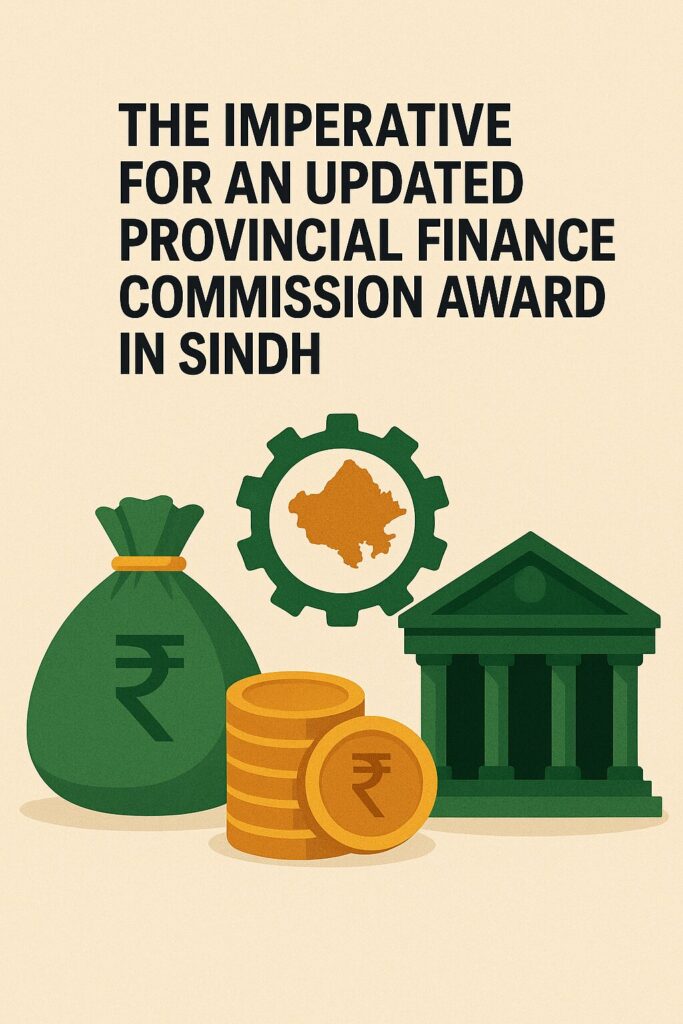
The Provincial Finance Commission (PFC) serves as a cornerstone in Pakistan’s fiscal architecture, facilitating the equitable distribution of financial resources from provincial governments to local bodies. In Sindh, the PFC’s role is pivotal in empowering local governments to deliver essential public services effectively. However, the absence of an updated PFC Award in Sindh has raised concerns about fiscal equity and the efficacy of local governance.
The PFC is mandated to determine the vertical distribution of resources between the provincial government and local governments, as well as the horizontal distribution among various local bodies. This mechanism ensures that local governments have the necessary financial autonomy to address the unique needs of their constituencies. In Sindh, the PFC operates under the jurisdiction of the provincial government, with the Finance Minister serving as its chairperson. Despite its critical role, the PFC in Sindh has not seen an updated award in recent years, leading to disparities in resource allocation and challenges in local service delivery.
The lack of a current PFC Award in Sindh has several implications. Firstly, it hampers the ability of local governments to plan and execute development projects effectively, as they face uncertainty in funding. Secondly, it undermines the principles of fiscal federalism and decentralization, which are essential for responsive governance. Lastly, it may lead to disparities in service delivery across different regions, exacerbating socio-economic inequalities.
To address these challenges, it is imperative for the Sindh government to prioritize the formulation and implementation of a new PFC Award. This process should involve comprehensive consultations with stakeholders, including local government representatives, civil society, and fiscal experts. The new award should consider factors such as population, poverty levels, and development needs to ensure a fair and needs-based distribution of resources.
Moreover, the updated PFC Award should be accompanied by capacity-building initiatives for local governments to enhance their financial management and service delivery capabilities. Transparency and accountability mechanisms should also be strengthened to ensure that allocated funds are utilized effectively and for their intended purposes.
Sindh’s unique governance and development context calls for a timely and tailored PFC mechanism that addresses both fiscal disparities and evolving service delivery needs. Without a current award, local councils are forced to operate without predictable, formula-based financial flows, undermining their planning horizons and operational effectiveness.
In conclusion, updating the PFC Award in Sindh is not merely a procedural requirement but a fundamental step towards strengthening local governance and promoting equitable development. By aligning fiscal transfers with the evolving needs of its diverse regions, Sindh can empower its local governments to serve their communities more effectively and uphold the principles of fiscal decentralization enshrined in Pakistan’s constitutional framework.
This Article was published at www.publicfinance.pk.
